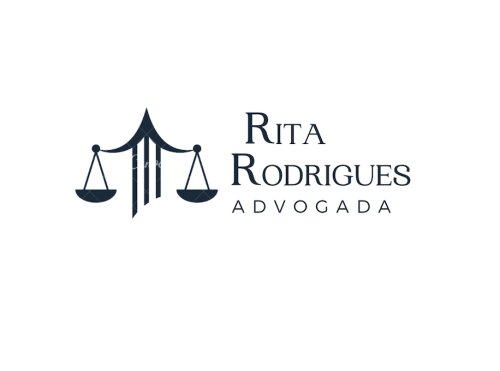Best Collaborative Law Lawyers in Porto
Share your needs with us, get contacted by law firms.
Free. Takes 2 min.
Free Guide to Hiring a Family Lawyer
List of the best lawyers in Porto, Portugal
About Collaborative Law in Porto, Portugal
Collaborative Law is a progressive approach to dispute resolution, particularly in areas such as family law, commercial disagreements, and workplace conflicts. In Porto, Portugal, Collaborative Law involves resolving legal issues without resorting to traditional courtroom litigation. Instead, parties work together with their respective lawyers to reach mutually beneficial agreements through structured negotiation and open communication. This method emphasizes transparency, respect, and the best interests of all involved, helping to preserve relationships and often resulting in more satisfying and durable outcomes.
Why You May Need a Lawyer
There are several scenarios where seeking the assistance of a lawyer skilled in Collaborative Law is beneficial:
- You are facing a divorce or separation and want to avoid a contentious court process
- There are disputes regarding child custody, visitation, or support and you wish to reach a cooperative resolution
- You are involved in a business partnership dispute where preserving the business relationship is important
- You need to resolve inheritance or family business disagreements among relatives
- You want an amicable approach to resolving workplace disputes
- You have concerns about confidentiality, privacy, or wish to avoid public records
In these cases, a Collaborative Law lawyer can guide you through a process designed to protect your interests while fostering understanding and agreement.
Local Laws Overview
In Portugal, including Porto, Collaborative Law is recognized as an alternative to traditional litigation, and it has seen growing use particularly in family law matters. Although there is no specific statute dedicated solely to Collaborative Law, its use is supported by the Portuguese Civil Procedure Code, which encourages out-of-court settlements and alternative dispute resolution (ADR) methods.
Key legal aspects relevant to Collaborative Law in Porto include:
- The agreements reached through collaborative processes can be formalized and made legally binding once approved by a notary or judge
- Portuguese law requires the best interests of children to be paramount in family law agreements
- Confidentiality is central to Collaborative Law proceedings, as discussions are generally not admissible in court if the collaborative process breaks down
- Each party retains their own legal representation to ensure balanced advocacy and informed decision making
Collaborative Law in Porto emphasizes voluntary participation, good faith negotiation, and mutual respect, underpinned by the legal framework that values peaceful dispute resolution.
Frequently Asked Questions
What is Collaborative Law?
Collaborative Law is a structured process where parties work with trained professionals to reach an agreement without resorting to court litigation.
How does Collaborative Law differ from mediation?
In Collaborative Law, each party has their own lawyer present during negotiations. In mediation, a neutral third party (the mediator) helps both sides reach an agreement, but does not represent either side.
What types of cases are suitable for Collaborative Law in Porto?
Collaborative Law is commonly used for family disputes (such as divorce, child custody, and property division), business conflicts, inheritance issues, and some employment matters.
Are Collaborative Law agreements legally binding in Portugal?
Yes, once an agreement is reached, it can be formalized with a notary or submitted to a judge for approval, making it legally binding.
What happens if the collaborative process fails?
If the process breaks down, the parties can proceed to court. However, the collaborative lawyers must withdraw, and new legal representation must be sought for litigation.
Is the collaborative process confidential?
Yes, all discussions and negotiations are confidential and generally cannot be used as evidence in court proceedings if the process fails.
How long does Collaborative Law take?
The duration depends on the complexity of the case and the willingness of the parties to cooperate. Collaborative cases often resolve faster than traditional litigation.
What are the main benefits of Collaborative Law?
Benefits include reduced stress, lower costs, preservation of relationships, privacy, and personalized solutions tailored to the parties’ needs.
How do I choose a Collaborative Law lawyer in Porto?
Look for lawyers who are trained and experienced in Collaborative Law, ideally members of professional organizations specializing in ADR and collaborative practice.
Can Collaborative Law be used for business disputes?
Yes, Collaborative Law can be an effective way to resolve business or partnership disputes while maintaining ongoing professional relationships.
Additional Resources
For those seeking more information or support regarding Collaborative Law in Porto, the following resources may be helpful:
- Portuguese Bar Association (Ordem dos Advogados) - Provides referrals to qualified lawyers and information on ADR
- Instituto Português de Mediação Familiar - Offers information on alternative dispute resolution in family matters
- Centro de Arbitragem da Universidade do Porto - Focused on education and provision of ADR services including collaborative practice
- Local family courts and court administrators - Can provide guidance on formalizing collaborative agreements
- Municipal legal aid offices in Porto - For those seeking free or subsidized legal advice
Next Steps
If you believe Collaborative Law may be the right approach for your situation in Porto, consider the following steps:
- Research and identify lawyers in Porto who are experienced in Collaborative Law
- Schedule an initial consultation to discuss your case and explore whether collaboration is appropriate
- Ensure all parties involved are willing to participate in the process in good faith
- Formally agree on the collaborative process with your lawyer and the other party’s lawyer
- Engage in structured negotiations to reach a mutually satisfactory agreement
- Once an agreement is reached, have it reviewed, finalized, and if necessary, approved by a notary or judge
Taking these steps can help you resolve your legal issues effectively, preserve important relationships, and avoid the time and stress associated with litigation.
Lawzana helps you find the best lawyers and law firms in Porto through a curated and pre-screened list of qualified legal professionals. Our platform offers rankings and detailed profiles of attorneys and law firms, allowing you to compare based on practice areas, including Collaborative Law, experience, and client feedback.
Each profile includes a description of the firm's areas of practice, client reviews, team members and partners, year of establishment, spoken languages, office locations, contact information, social media presence, and any published articles or resources. Most firms on our platform speak English and are experienced in both local and international legal matters.
Get a quote from top-rated law firms in Porto, Portugal — quickly, securely, and without unnecessary hassle.
Disclaimer:
The information provided on this page is for general informational purposes only and does not constitute legal advice. While we strive to ensure the accuracy and relevance of the content, legal information may change over time, and interpretations of the law can vary. You should always consult with a qualified legal professional for advice specific to your situation.
We disclaim all liability for actions taken or not taken based on the content of this page. If you believe any information is incorrect or outdated, please contact us, and we will review and update it where appropriate.












